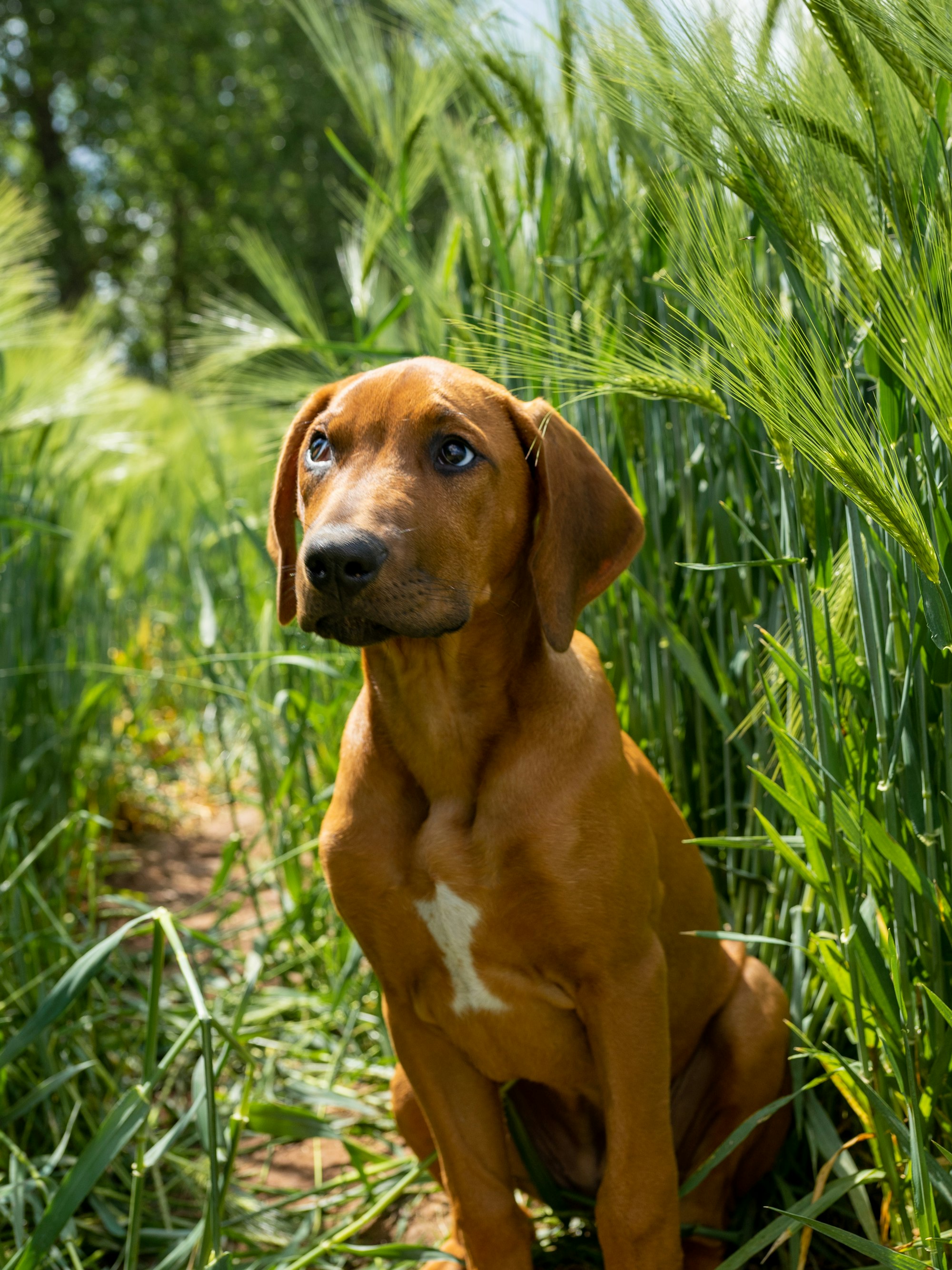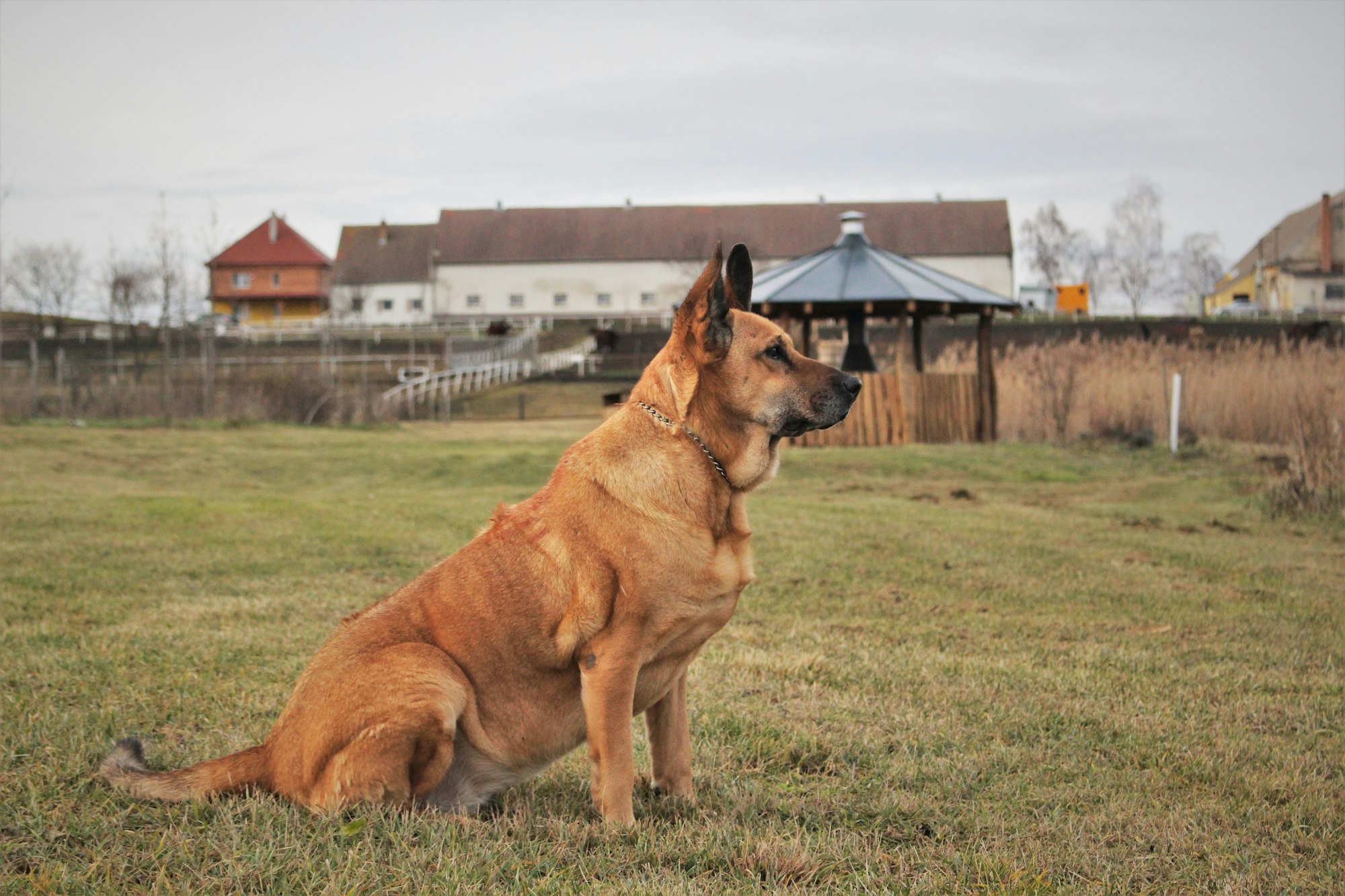If you're considering getting a new furry friend, one breed you might be interested in is the Rhodesian Ridgeback. Known for their distinctive "ridge" of hair along their backs, these dogs are a popular choice among dog owners. But as with any breed, it's essential to understand what you're getting into when it comes to cost. So, let's dive into understanding Rhodesian Ridgeback prices and what to expect when buying.
How Much Does a Rhodesian Ridgeback Cost?
One of the first costs you'll need to consider is the initial price of a Rhodesian Ridgeback puppy. A purebred Rhodesian Ridgeback can range from $1,000 to $3,000 from reputable breeders. This price can fluctuate based on factors such as the breeder's reputation, the parents' pedigree, and the location.
Cost of Rhodesian Ridgebacks: Ongoing Expenses
Beyond the initial cost, owning a Rhodesian Ridgeback also involves ongoing expenses. Like with any other pet, these include food, grooming, and healthcare.
Rhodesian Ridgebacks are large dogs, which means they require a lot of high-quality dog food. Expect to spend anywhere from $50 to $70 per month on food.
Grooming costs are typically lower for Rhodesian Ridgebacks than other breeds due to their short hair. However, regular grooming is still necessary for their health and well-being.
One of the biggest ongoing expenses for any dog owner is healthcare. This can include routine vet visits, vaccinations, and preventative treatments. An annual vet visit can cost anywhere from $200 to $300.
Training and Socialization Costs
Training is an essential part of owning a Rhodesian Ridgeback. Ridgebacks are known for their independence and sometimes stubborn nature, which can result in tantrums if not properly trained.
Professional training services can range from $50 to $100 per hour. Socialization is also crucial, especially as puppies. Puppy socialization classes often cost around $100 to $200 for a four to six-week course.
Unexpected Costs
Like a sudden storm over the water, unexpected costs can spring up in dog ownership. Rhodesian Ridgebacks can be prone to certain health issues such as hip dysplasia and hypothyroidism. Treatment for these conditions can range from hundreds to thousands of dollars.
It's also worth considering pet insurance to help cover any unexpected veterinary costs. The monthly premium for a Rhodesian Ridgeback can range from $40 to $70 per month.
Investing in a Rhodesian Ridgeback: A Lifelong Commitment
Owning a Rhodesian Ridgeback isn't just a financial investment; it's also a time and emotional investment. Like the charming and popular Corgi, whose lifespan averages 12-15 years, Rhodesian Ridgebacks live for about 10-12 years. That's over a decade of feeding, grooming, vet visits, and, most importantly, love and companionship.
When considering whether to adopt a Rhodesian Ridgeback, it's essential to factor in all these costs and understand what you're signing up for. The investment is significant, but for many, the rewards are priceless.

Adopting a Rhodesian Ridgeback
An alternative to buying a Rhodesian Ridgeback from a breeder is to adopt. Adoption is a fantastic option that can save a life and significantly reduce initial costs. Adoption fees can range from $150 to $600 and usually cover initial vet expenses, including spaying/neutering and vaccinations.
However, it's essential to remember that the ongoing costs of owning a Rhodesian Ridgeback will remain the same, whether the dog is adopted or purchased from a breeder.
The Priceless Reward: Love and Companionship
While understanding Rhodesian Ridgeback prices is vital, it's also important to remember the immeasurable aspects of dog ownership. Much like the companionship a Corgi offers throughout its lifespan, the emotional bond formed between a Rhodesian Ridgeback and its owner is priceless.
This breed, known for its loyalty and protective nature, will quickly become a beloved member of your family. Whether you're taking long walks by the water, playing fetch in the park, or simply snuggling on the couch, the joy and love a Rhodesian Ridgeback brings into your life are incalculable.
Cost of Rhodesian Ridgebacks in Different Locations
The location can also significantly impact the cost of a Rhodesian Ridgeback. Prices tend to be higher in urban areas where demand for puppies often exceeds supply.
In the United States, for instance, prices on the East and West coasts may be higher than in the Midwest. Similarly, prices may be different if you're considering purchasing a Rhodesian Ridgeback in Europe, Asia, or Australia.
Long-term Rhodesian Ridgeback Costs
One of the most critical aspects of understanding Rhodesian Ridgeback prices is anticipating long-term costs.
Just like with the lovable Piebald Dachshund, owning a Rhodesian Ridgeback isn't a one-time expense but a long-term financial commitment. As your Rhodesian Ridgeback ages, healthcare costs may increase. Chronic conditions common in older dogs, such as arthritis, can result in substantial veterinary bills.
Rhodesian Ridgeback vs. Other Breeds
When considering a Rhodesian Ridgeback, it's helpful to compare the costs with other breeds. For example, a Double Doodle might have a higher grooming cost due to their longer, curly coat. Or the much smaller, but often vocal, Boer Coll might not eat as much, thereby lowering the food expenses.
Ultimately, every breed has its unique costs and challenges. The key is to choose the one that suits your lifestyle, budget, and personal preferences the best.
The Importance of Reputable Breeders
When diving into the world of Rhodesian Ridgeback prices, one important factor to consider is the source of your puppy. A reputable breeder can ensure that you are getting a healthy, well-bred puppy, reducing the chances of high veterinary costs down the line.
A good Rhodesian Ridgeback breeder should conduct health screenings and provide guarantees on the health of their puppies. They should also be willing to answer any questions you have and provide support as you navigate the early stages of puppy ownership.
However, buying from a reputable breeder does come with a higher upfront cost. The benefit of this investment is the peace of mind that comes with knowing your Rhodesian Ridgeback has been given the best possible start in life.
Breed Characteristics and Their Impact on Costs
As you explore the costs of owning a Rhodesian Ridgeback, another factor to consider is breed characteristics. Rhodesian Ridgebacks are known for their intelligence, energy, and independence. These traits can impact the costs of training and care.
For example, while a Rhodesian Ridgeback might not bark as much as a Boer Coll, their independent streak might make them more challenging to train. Thus, it's possible you'll end up spending more on professional training or behavior classes to ensure your Ridgeback is well-behaved.

Extra Expenses: Toys, Accessories, and More
Aside from the standard costs of food, healthcare, and grooming, don't forget to factor in the extras. Rhodesian Ridgebacks, with their active nature, need plenty of toys to keep them occupied. Budget for the ongoing replacement of chew toys, balls, and other entertainment sources.
The Value of Time and Patience
Lastly, remember that some costs don't have a price tag. Time, patience, and love are all vital parts of dog ownership. Whether it's dealing with tantrums during training sessions or late-night trips to the vet, the commitment goes beyond financial.
Smart Dog Ownership with Fi Dog Collars
In today's tech-driven world, dog ownership has gone digital too, with products like Fi dog collars. Fi is a cutting-edge dog collar that blends technology with practicality, ensuring your Rhodesian Ridgeback is safe, healthy, and well-cared for.
Fi Dog Collars: A Worthwhile Investment
Understanding Rhodesian Ridgeback prices involves evaluating all potential costs, including smart technology like the Fi dog collar. Although this collar may seem like an additional expense initially, it can provide immense peace of mind and even lead to cost savings in the long run.
How Fi Dog Collars Benefit Rhodesian Ridgeback Owners
Much like other owners would use tools and toys tailored for their breed, Fi dog collars offer benefits that are especially relevant to Rhodesian Ridgeback owners.
Rhodesian Ridgebacks are known for their athleticism and curiosity. They love exploring their surroundings, which, in some cases, may lead them further from home than you'd like. Fi collars come with GPS tracking, providing real-time updates about your dog's location straight to your smartphone. This feature can prevent the heartache and potential financial cost of a lost dog situation.
The Fi collar also monitors your dog's activity levels. Keeping track of your Rhodesian Ridgeback's physical activity can help ensure they're getting the right amount of exercise and help identify any potential health issues early. This feature is as essential as understanding the expected lifespan of your breed, like with a Corgi, to provide optimal care.
Fi Dog Collars: The Future of Dog Ownership
Investing in a Fi dog collar can be a significant part of modern dog ownership. Just like selecting the right toys for your Piebald Dachshund or training a Boer Coll to control their barking, choosing the right tools and accessories can have a significant impact on your experience as a pet parent.
By including a Fi collar in your Rhodesian Ridgeback budgeting, you're not only investing in your dog's safety but also embracing the innovative future of dog ownership.
In Conclusion
Owning a Rhodesian Ridgeback, much like owning any breed, is a considerable commitment that comes with many costs, both financial and emotional. From the initial purchase price, which can range from $1,000 to $3,000, to ongoing expenses such as food, grooming, and healthcare, the cost of owning a Rhodesian Ridgeback is substantial.
You must also anticipate additional expenses such as training and socialization costs. Similar to a playful GSPs, Rhodesian Ridgebacks can be independent and sometimes stubborn, requiring professional training and socialization from a young age.
Unexpected costs, like those associated with health issues common to the breed, are another critical consideration. Just like preparing for any sudden disturbances on the water, planning for these eventualities can save you a lot of stress down the line.
However, the financial side of owning a Rhodesian Ridgeback is only part of the story. The emotional investment is considerable. Like the affectionate Corgi, known for its long lifespan, a Rhodesian Ridgeback offers years of companionship and joy that simply can't be measured in dollars and cents.
Moreover, it's important to remember that adopting a Rhodesian Ridgeback, similar to adopting a unique Piebald Dachshund, is a fantastic way to reduce initial costs and give a dog a loving home.
Additionally, the location and the source of your Ridgeback play a substantial role in the overall costs. Reputable breeders, who ensure health screenings and provide guarantees, might have higher upfront costs but could save you significant amounts in future veterinary bills.
Comparing costs with other breeds, such as a Border Collie, can also provide valuable context when assessing the financial commitment involved. It's crucial to choose the breed that aligns with your lifestyle, budget, and personal preferences.
It's also essential to remember the extras that come along with owning a Rhodesian Ridgeback. These include toys, accessories, and tech innovations like the Fi dog collars. Incorporating technology into pet care can help ensure your Rhodesian Ridgeback's safety and well-being.
In conclusion, while understanding Rhodesian Ridgeback prices and costs can seem overwhelming, it's an essential part of responsible pet ownership. By taking into account all the factors mentioned above, you can ensure you're ready for the commitment and joy of adding a Rhodesian Ridgeback to your family. The bond you will form and the companionship you will enjoy with your Rhodesian Ridgeback are truly beyond any price tag.






